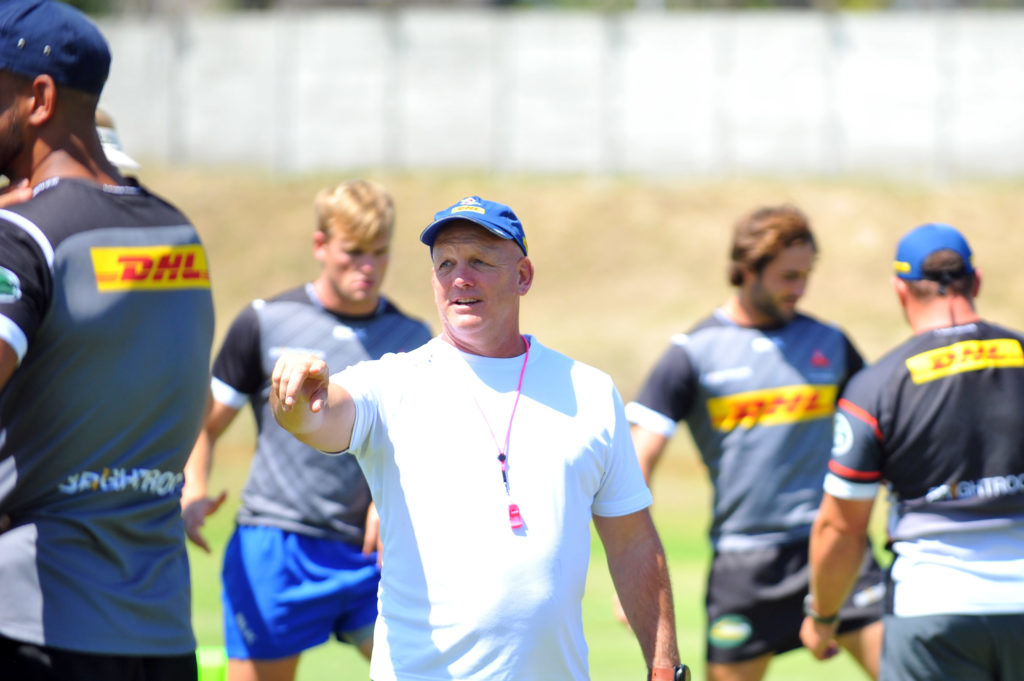Time away from the game during a challenging period for the nation will test the players’ mental strength, discipline and maturity, writes JON CARDINELLI.
Last Sunday, president Cyril Ramaphosa declared a national state of disaster and confirmed that there were 61 cases of Covid-19 in South Africa. By Saturday, the National Institute for Communicable Diseases confirmed that the number had risen to 240.
To say that a lot has transpired in the space of a seven days would be a gross understatement. Sports pages and websites have been inundated with reports about cancelled fixtures and tournaments. Significant financial losses for individual clubs and alliances – such as Sanzaar – are expected if the game doesn’t resume in some shape or form over the next couple of months.
Earlier this week, Stormers coach John Dobson put things into perspective when he spoke about how much things had changed. The Stormers played the Sharks in Durban on 14 March. By the time Dobson faced the Cape media three days later, the Vodacom Super Rugby tournament had been paused and heavy travel restrictions had been imposed.
HEAD TO HEAD: What gives way in 2020?
Dozens of suitcases lined the hallway outside the press conference room. Dobson confirmed that those bags – which were set to travel with the players to Argentina shortly after the game in Durban – would remain in Cape Town.
Dobson and team doctor Jason Suter spoke at length about the physical challenges facing the players during this period. Sanzaar is scrambling to reshape the Super Rugby competition and there have been reports that the first domestic game in Australia could kick off as early as 3 April.
When one considers that the number of positive Covid-19 cases are rising in most regions, however, one struggles to see how any sort of tournament will commence in the near future. Former Wales centre Jamie Roberts, who is currently with the Stormers, was quoted this week saying that he doubts that the season will be completed.
I asked Dobson about the mental challenges this will pose to the players, and how the coaches could offset these during this immensely difficult time. The question was put to the Stormers coach a couple of days after the state of disaster was declared, but could be put to any coach as the ordeal continues and the stress accumulates in the coming months.
Dobson highlighted the resilience of the younger generation. That attitude might serve the players well during this testing time.
On the other hand, he went out of his way to point out that the Stormers are taking this threat seriously and would be taking the necessary precautions.
‘I don’t think anyone in this room was aware of what was truly happening until a few days ago,’ he said at the time. ‘Doc is educating them medically on what’s happening. I don’t want to go in and be the doomsayer and say rugby doesn’t exist anymore.
‘We’ll see what happens with more facts. We just want to make sure they’re safe, and that they can carry on training. It’s fair to say, though, that they’re definitely concerned.’
READ: Force in as Oz confirm domestic series
These are concerning times for all citizens, whether they are professional athletes or not. During the period of isolation – which is unlikely to be brief – everyone will be expected to deal with a number of challenges outside of their daily jobs.
Fortunately the players based in South Africa will have access to their families. A number of South Africans, however – and indeed other foreigners playing in the UK, Europe and Japan – have found themselves stranded on the other side of the world during this time of crisis.
As MyPlayers confirmed to SARugbymag.co.za on Friday, negotiations are still ongoing regarding contingency tournaments or restarts in the event that the coronvirus situation improves in the coming weeks or months. Until then, some players may need to continue training overseas while their families deal with the challenges back home.
Fortunately there have been no deaths in South Africa as yet, but the threat of the coronavirus has led to schools being closed and many employees are now working from home.
Franchises and clubs will do well to manage their more senior players during this period, especially those who have been cut off from their partners and young children. On the other end of the scale, the coaches must ensure that the younger players continue to acknowledge this threat.
There have been reports of university and college students treating the break like a vacation. Even though beaches and bars are now closing, some are determined to live their lives as if there isn’t a global pandemic.
‘If I get corona, I get corona,’ one American youth said in an online video that’s since been posted on the BBC website.
‘It’s messing with my vacation, and it’s really not that serious… it’s being blown out of proportion,’ said another.
One would hope that the young athletes in South Africa are more mature and would not put themselves or their fellow citizens in harm’s way.
That said, it’s been only one week since Super Rugby was shut down and a ban was placed on mass gatherings in South Africa. Players will be under pressure to maintain their focus in the coming months – despite the lack of matches and traditional field sessions – and coaches will certainly have a role to play in ensuring that their charges remain in the right mental space.





